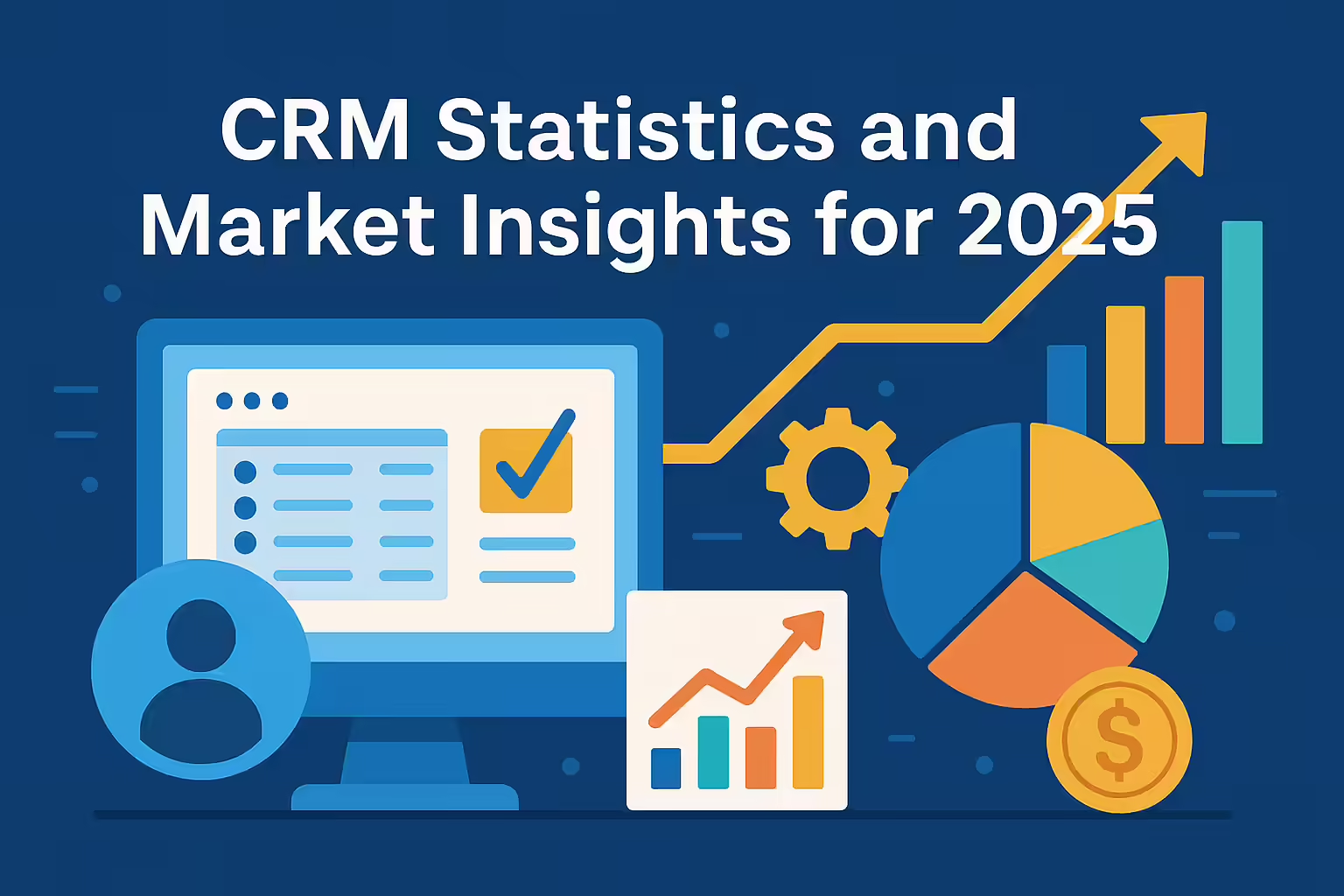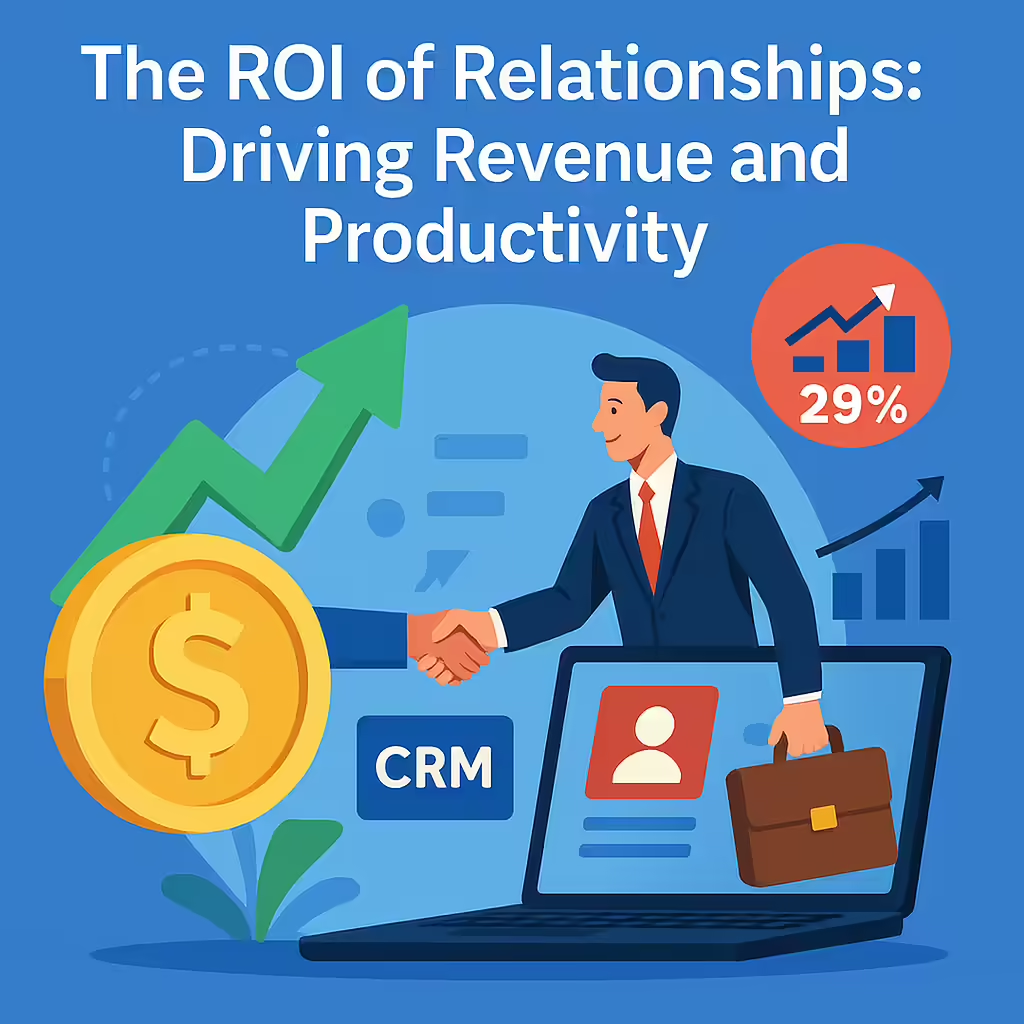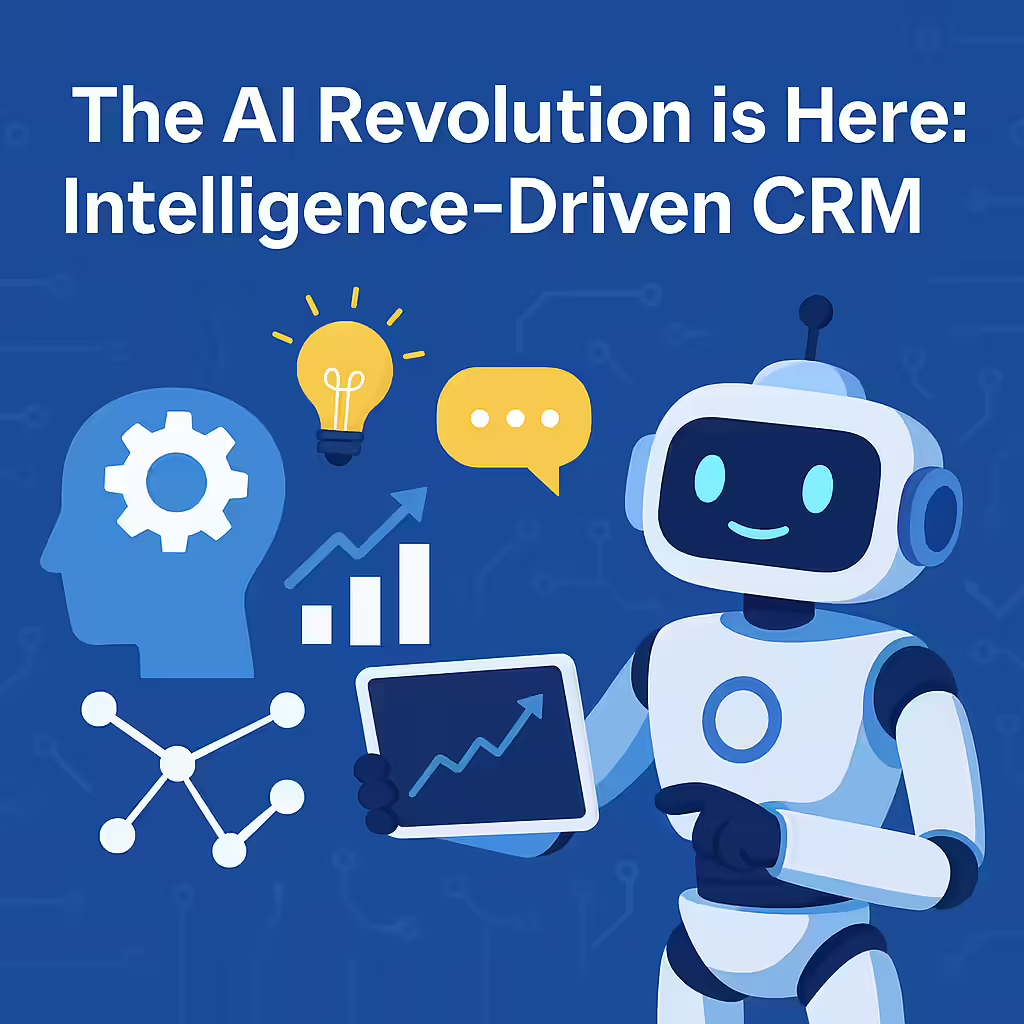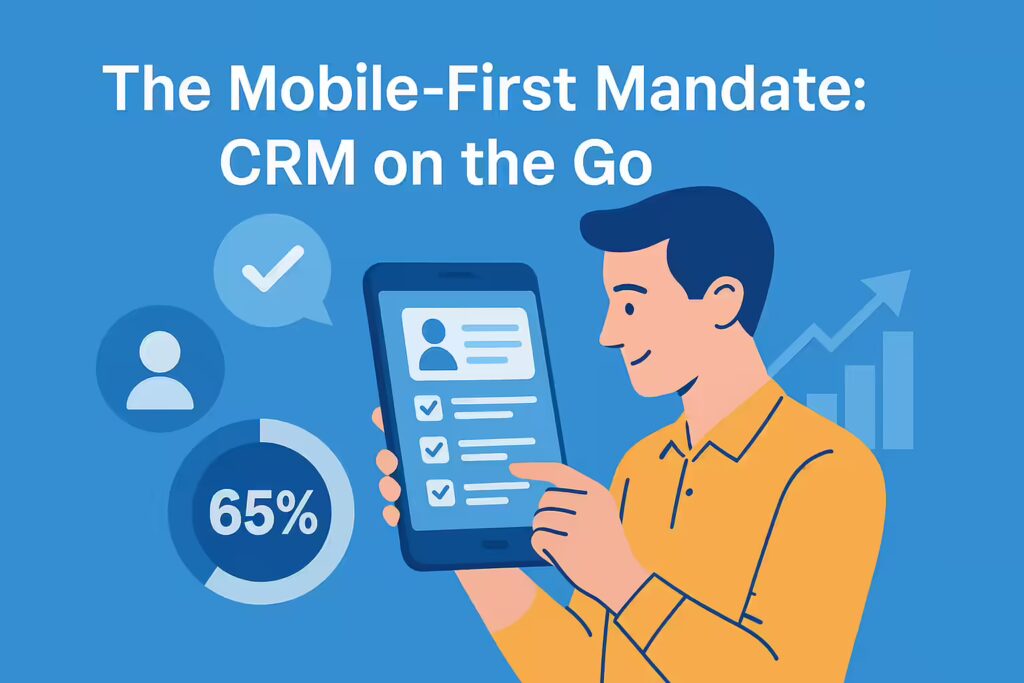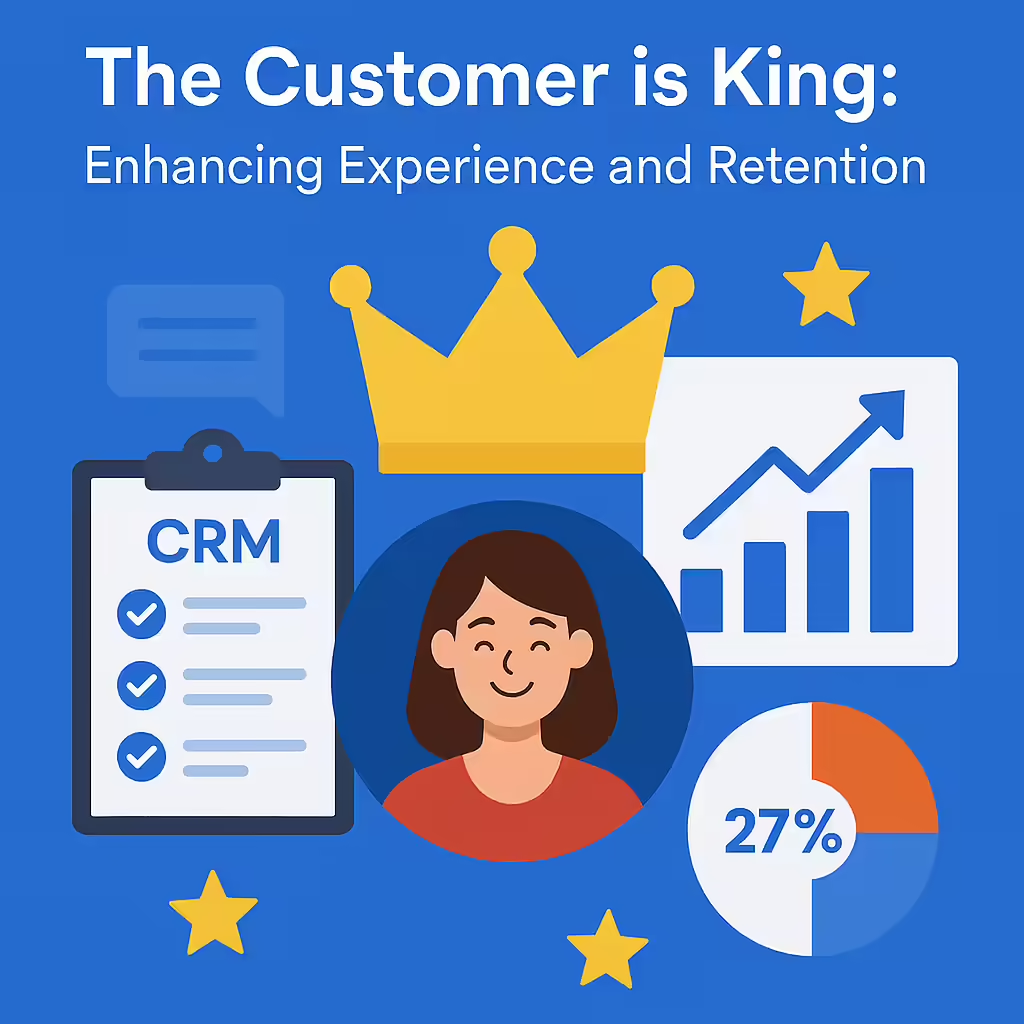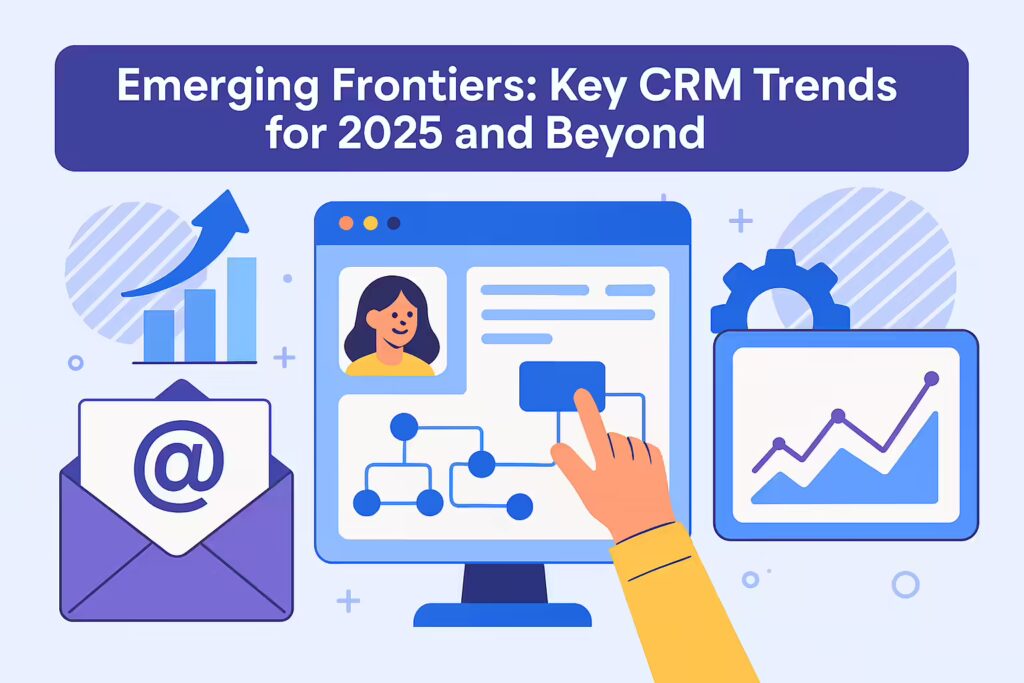For decades, Customer Relationship Management (CRM) platforms were viewed primarily as digital rolodexes—sophisticated databases for storing contact information and logging sales calls. In 2025, that perception is not just outdated; it is a strategic liability. The conversation around CRM has fundamentally shifted. It is no longer a question of if a business should adopt a CRM, but how it can leverage the platform’s burgeoning capabilities to forge a durable competitive advantage.
Today’s CRM has evolved into the indispensable, intelligence-driven engine powering the world’s most successful businesses. It is the central nervous system that connects sales, marketing, and customer service, transforming raw data into actionable insights. The infusion of Artificial Intelligence (AI) has moved CRM from a passive repository to an active participant in the revenue-generation process—a system of intelligence and action. These statistics reveal the profound impact CRM has on business outcomes and highlight key areas of growth and challenges.
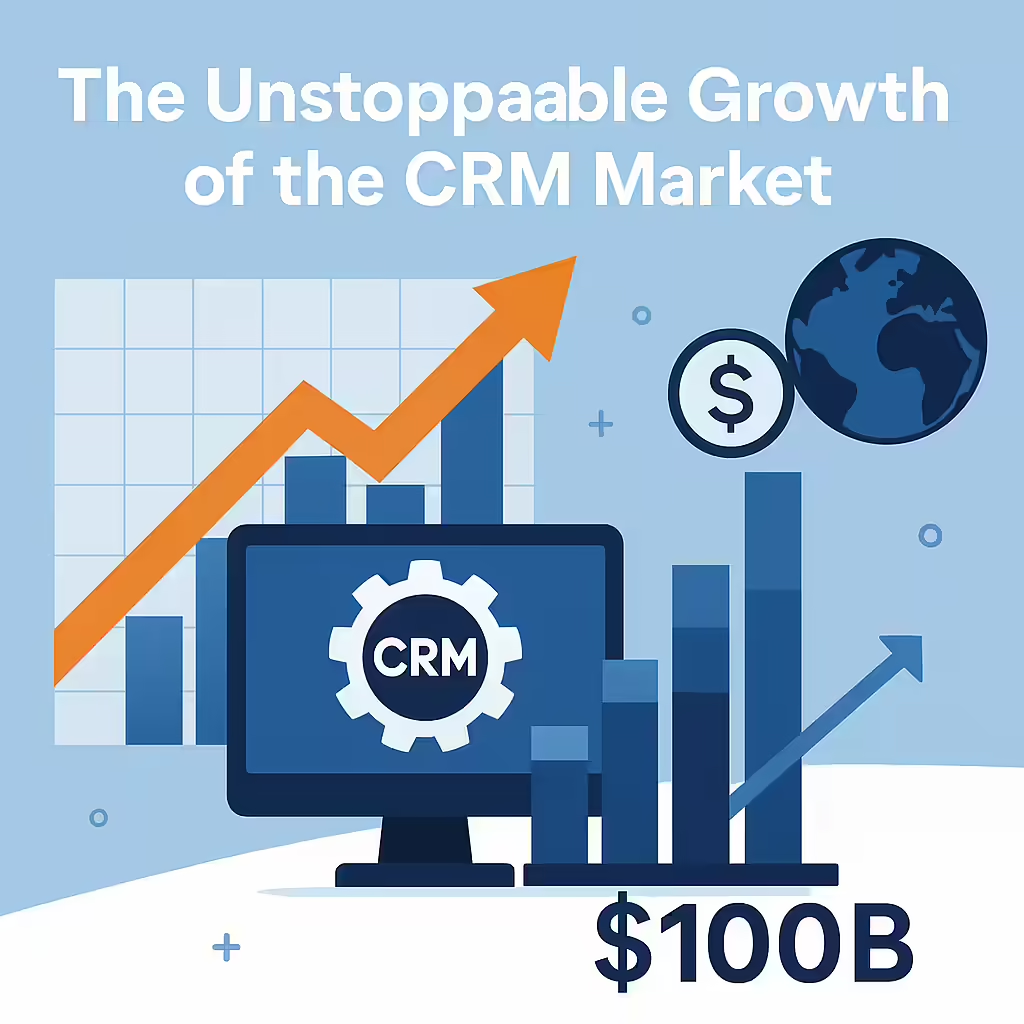
The Unstoppable Growth of the CRM Market
The sheer scale and momentum of the CRM industry underscore its foundational importance across the global business landscape. The data reveals that CRM is not a niche tool but a multi-billion-dollar industry experiencing sustained, rapid growth, cementing its status as essential operational infrastructure for any company serious about growth.
- The global CRM market is projected to surpass $112 billion in 2025, with a clear trajectory toward $262 billion by 2032. This explosive growth is not merely a continuation of past trends; it represents an acceleration. This surge is fueled by widespread digital transformation initiatives, the strategic necessity of customer retention in competitive markets, and, most significantly, the revolutionary impact of AI integration. The market is expanding at a Compound Annual Growth Rate (CAGR) of approximately 12.8%.
- Other significant market projections include:
- Fortune Business Insights projects the market at $112.91 Billion in 2025, growing to $262.74 Billion by 2032 with a 12.8% CAGR.
- Grand View Research estimates $82.43 Billion in 2025, reaching $163.16 Billion by 2030 with a 14.6% CAGR.
- Mordor Intelligence forecasts $81.20 Billion in 2025, increasing to $123.24 Billion by 2030 with an 8.70% CAGR.
- Demand Sage (Statista) projects $97.90 Billion by 2025, ultimately reaching $146.1 Billion by 2029 with approximately a 10.4% CAGR.
- Beyond the overall market, specific segments are also showing robust expansion:
- The global AI in CRM market size is expected to reach $11.04 billion in 2025, highlighting AI’s significant role in enhancing CRM capabilities.
- The mobile CRM software market size is projected to grow from $28.43 billion in 2024 to $31.61 billion in 2025, emphasizing increasing reliance on mobile-friendly solutions.
- In 2025, the projected revenue in the CRM Software market in Eastern Europe is estimated to reach USD $1.43 billion, indicating strong regional growth in CRM adoption and spending.
- CRM adoption rates continue to climb, showcasing its foundational role:
- A significant 91% of companies with 10 or more employees now use CRM software. This statistic demonstrates near-total market saturation among established businesses; CRM is now standard operational infrastructure.
- There is a notable 12.6% year-on-year growth in CRM adoption, signifying consistent recognition of CRM as a foundational business system.
- 65% of businesses implement CRM within their first five years of operation. This indicates that early adoption of CRM is critical for supporting business growth, especially for startups and small-to-medium businesses.
- 87% of businesses use cloud-based CRM platforms, a definitive shift from just 12% in 2008. The cloud enables ubiquitous mobile access, real-time data synchronization, and seamless integrations.
- 92% of businesses acknowledge the crucial role of CRM software in achieving their revenue goals, seeing CRM as the “glue” that aligns data and processes across sales, marketing, and customer success teams.
The ROI of Relationships: Driving Revenue and Productivity
Beyond market growth, the true measure of CRM’s value lies in its direct impact on a business’s bottom line. The data provides a clear and compelling financial case, proving that a strategic investment in CRM is not a cost center but a high-yield profit center.
- The average return on investment (ROI) of CRM is a substantial $8.71 for every $1 spent. When properly implemented, the ROI of CRM software can increase by 245%.
- CRM implementation drives an average increase of 29% in sales revenue, a direct consequence of better lead management and more efficient processes.
- Lead conversion rates can increase by up to 300% with a well-utilized CRM, highlighting its effectiveness in turning leads into sales through consistent follow-up and sophisticated nurturing.
- Sales productivity gets a 34% boost from CRM adoption, as it automates administrative tasks and centralizes customer data, freeing up sales representatives to focus on selling. A CRM platform can also improve productivity by 34% to 40%.
- Data accessibility through CRM shortens sales cycles by 8-14%, as reps gain a 360-degree view of the customer for more intelligent conversations.
- CRM can increase sales forecasting accuracy by 32% to 42%, moving forecasting from an art to a data-driven science.
- A significant 97% of sales teams in the US and Canada say their CRM system is important or very important in closing deals, underscoring its critical role in empowering sales teams.
The AI Revolution is Here: Intelligence-Driven CRM
In 2025, Artificial Intelligence has officially transitioned from a promising buzzword to the fundamental operating system of modern CRM. It is no longer an optional add-on; it is the core value proposition, transforming passive databases into proactive, intelligent partners for sales teams. The data shows that this is not a future trend—it is a present-day reality delivering measurable, outsized results.
- 65% of businesses have already adopted CRM systems with generative AI, with projections showing over 70% of all platforms will be AI-integrated by the end of 2025. This rapid adoption signals a definitive market shift, positioning a CRM without robust AI as legacy technology.
- A significant 51% of businesses identify generative AI (chatbots, predictive analytics, content creation) as the top CRM trend for 2024, demonstrating a focus on AI’s potential to enhance CRM.
- Businesses using generative AI in their CRM are 83% more likely to exceed their sales goals, creating an undeniable link between AI adoption and elite sales performance by empowering reps with strategic “co-pilots.”
- AI-driven lead scoring can increase conversion rates by up to 20%, scientifically predicting which leads are most likely to convert.
- AI improves sales forecast accuracy by over 40%, enabling more reliable strategic business planning.
- Integrating AI and CRM leads to a 15% increase in repeat sales and customer retention. AI also contributes to 30-50% faster response times to customer inquiries and better engagement results with prospects and customers through virtual sales assistants.
Leading CRM platforms are actively integrating AI capabilities:
| CRM Platform | AI Assistant Name | Key Generative AI Features | Key Predictive AI Features |
|---|---|---|---|
| Microsoft Dynamics 365 | Copilot | Meeting summaries, email/chat drafting, record updates | Predictive lead & opportunity scoring, forecasting |
| Salesforce | Einstein GPT / Agentforce | Email/report generation, AI agent creation for tasks | Predictive lead scoring, opportunity insights, forecasting |
| Oracle CRM | Oracle AI | Sales content writing, support chat summaries | Churn prediction, upsell analytics, forecasting |
| SAP CRM | Joule AI Copilot | Auto-generated meeting notes, CX AI toolkit | Predictive lead scoring, AI product recommendations |
| Zoho CRM | Zia (powered by ChatGPT) | Email/social post generation, ticket answering | Lead & deal predictions, sentiment analysis |
The Mobile-First Mandate: CRM on the Go
In an era defined by remote work, distributed teams, and a sales force that is constantly in motion, mobile CRM has evolved from a convenient feature to an absolute necessity. The ability to access and update customer data from anywhere is directly correlated with achieving sales targets.
- A striking 65% of salespeople using a mobile CRM achieve their sales quotas, compared to only 22% of those who do not, demonstrating a direct, undeniable link between mobile access and sales success.
- 70% of businesses use mobile CRM systems to enhance their sales strategies, reflecting the necessity for mobile access to crucial CRM data from anywhere.
- Businesses leveraging mobile CRM platforms are 150% more likely to exceed their sales goals, showcasing the significant competitive edge gained.
- 50% of teams report improved productivity by using a mobile CRM, as representatives can update deal stages, log call notes, and access critical customer data instantly from the field.
- 81% of users now access their CRM from multiple devices, confirming that multi-platform access is the standard user behavior and a robust mobile experience is essential.
The Customer is King: Enhancing Experience and Retention
The ultimate goal of any business is to create and retain happy, loyal customers. In 2025, the primary arena where this battle is won or lost is customer experience (CX). CRM is the central technology for orchestrating a winning CX strategy, providing the unified data and tools necessary to deliver the seamless, personalized interactions that modern buyers demand.
- More than two-thirds of companies now compete primarily on the basis of customer experience, a dramatic increase from just 36% in 2010. The quality of the customer journey has become the key brand differentiator.
- A CRM system can increase customer retention by up to 27%, as it unifies data from every touchpoint, empowering teams to deliver consistent, proactive, and personalized support that builds lasting trust.
- 47% of CRM users say that a CRM system has a tremendous and massive impact on customer satisfaction, with 75% of organizations using CRM having experienced significant improvements. High satisfaction results from reps having full customer context at their fingertips.
- 79% of customers expect a consistent experience across all channels, highlighting the critical need for omnichannel capabilities where the CRM acts as a central hub unifying all interactions.
However, challenges in data integrity remain:
- A concerning 37% of CRM users reported losing revenue as a direct consequence of poor data quality, highlighting a major challenge that directly impacts financial outcomes.
- A significant 76% of CRM users said less than half of their organization’s CRM data is accurate and complete, pointing to a widespread problem with data integrity that hinders CRM’s full potential.
Emerging Frontiers: Key CRM Trends for 2025 and Beyond
While AI and mobile access define the present, the next wave of CRM innovation is already taking shape, pushing the boundaries of personalization, efficiency, and strategic alignment.
- Hyper-Personalization at Scale: The future of personalization moves beyond basic naming, leveraging real-time behavioral data to trigger highly contextual outreach. This includes automated emails when a prospect revisits a pricing page or tailoring onboarding flows based on specific feature discussions.
- The Rise of Industry-Specific (Vertical) CRMs: Businesses are increasingly opting for CRMs pre-configured for their specific industry’s unique workflows, data models, and compliance requirements (e.g., HIPAA-compliant templates for healthcare). These offer faster implementation and deeper, more relevant insights.
- Low-Code and No-Code Customization: This trend empowers non-technical users, like sales operations managers, to customize and extend their CRM using intuitive drag-and-drop interfaces to build workflows, dashboards, and forms without coding. This increases business agility and reduces reliance on IT.
- Full-Lifecycle Customer Experience Management (CXM): The scope of CRM is expanding to encompass the entire customer journey, integrating functionality for customer onboarding, support ticketing, success management, and renewals directly into the platform. The CRM is becoming the definitive system of record for long-term customer health and lifetime value.
The Age of the Intelligent Customer Relationship
The data presented paints an unambiguous picture: in 2025, a CRM is not an optional tool but the strategic command center for sustainable business growth. The market’s relentless expansion, now valued at over $112 billion, confirms its universal importance. The staggering average ROI of $8.71 for every dollar spent proves its profound financial impact.
However, the most transformative shift is the infusion of intelligence. The fact that businesses using AI in their CRM are 83% more likely to exceed their sales goals is a clear signal that we have entered a new era. This is the age of the intelligent customer relationship, where success is determined not just by the data a company collects, but by its ability to activate that data with predictive insights and automation. Furthermore, the direct correlation between mobile CRM usage and a 65% quota attainment rate underscores that this intelligence must be accessible anywhere, anytime.
Ultimately, these technological advancements all serve a single, timeless business principle: the customer comes first. A modern CRM is the engine that allows a company to deliver on that promise at scale. It is the tool that enables the seamless, personalized, and proactive experiences that build loyalty and create a durable competitive advantage. For business leaders, the question is no longer about technology adoption. It is a fundamental question of business strategy: are you equipped to compete and win in the age of the intelligent customer relationship?
Actionable Takeaways for Your Business
- Audit Your AI Readiness: Evaluate the quality and cleanliness of your current CRM data. Prioritize data hygiene initiatives like de-duplication, standardization of fields, and removal of stale records. Clean data is the essential fuel for AI, ensuring that AI-powered features will be accurate, reliable, and deliver maximum impact on your revenue goals.
- Go All-In on Mobile: Ensure your CRM has a robust, user-friendly mobile application. Mandate and train your sales team to use the mobile CRM for all field updates, call logging, and deal management. This will empower your team to sell in real-time, shorten sales cycles, and dramatically increase their likelihood of hitting sales quotas by capitalizing on the proven success rates of mobile users.
- Map Your Customer Experience: Use your CRM as a central hub to map every touchpoint a customer has with your company. Identify and actively work to eliminate data silos between your sales, marketing, and service teams. This will create the seamless, consistent omnichannel experience that modern customers demand, leading to higher satisfaction, increased retention, and a stronger brand reputation.
- Automate Everything You Can: Identify the top 3-5 repetitive, administrative tasks your sales team performs daily (e.g., follow-up reminders, data entry, basic reporting) and build automations for them within your CRM. This will reclaim hundreds of hours of valuable selling time for your reps, boosting their productivity and allowing them to focus on high-value, relationship-building activities that close deals.


